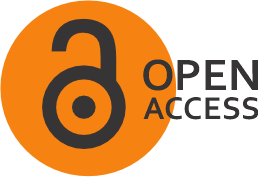Islamic perspective on corruption

Published online: 18 Jun 2025
Abstract
Purpose-Corruption is a serious problem that not only hinders the progress of the country but also causes social injustice. From the perspective of Islam, corruption is considered a major sin that violates the principles of justice, trustworthiness, and honesty. This study aims to examine the perspective of Islam on corruption, as well as the role of leaders and religious figures in eradicating corruption and building ethical and spiritual awareness among the people. Research Methodology / Design / Approach- The method used is a literature study and a qualitative approach by examining sources of the Qur'an, Hadith, fiqh literature, and the opinions of scholars. Findings-The results of the study show that corruption in Islam is defined as an act that is destructive and contrary to moral values, with various types of corruption identified. The causes of corruption include bribery, materialistic lifestyles, and external factors such as the political system. The punishments applied are in the form of ta'zir punishment, return of victim rights, social sanctions, and threats of punishment in the afterlife. Efforts to eradicate corruption include anti-corruption education based on Islamic morals, fair law enforcement, and the active role of religious leaders and communities in spreading anti-corruption values. Originality / Value- instilling the values of honesty and anti-corruption education from an early age is very important to create a generation with integrity and realize a future for Indonesia that is free from corrupt practices.
References
Gokcekus, O. (2020). Religion, religiosity, and corruption. Religion, Brain & Behavior, 10(3), 231–245.
https://doi.org/10.1007/s13644-020-00421-2
Beekun, R. I., & Badawi, J. A. (2005). Balancing ethical responsibility among multiple organizational stakeholders: The Islamic perspective. Journal of Business Ethics, 60(2), 131–145.
https://doi.org/10.1007/s10551-004-8204-5
Takdir, M. (2022). The implementation of anti-corruption education based on religious ethics. Jurnal eL-Tarbawi, 15(1). Nurhanudin, N., Winarso, W., & Sumarna, C. (2025). Kontekstualisasi Pendidikan Agama Islam terhadap Pendidikan Anti Korupsi. Jurnal Pengabdian Masyarakat dan Riset Pendidikan, 3(4). https://doi.org/10.31004/jerkin.v3i4.1469
Beets, S. D. (2007). Global corruption and religion: An empirical examination. Journal of Global Ethics, 3(1), 69–85. https://doi.org/10.1080/17449620600991614
Kamali, M. H. (2008). Shari‘ah law and governance: Ethics and corruption. Islamic Studies, 47(1), 85–107.
https://doi.org/10.1007/s13644-020-00421-2
Alatas, S. H. (1987). Corruption: Its nature, causes and consequences. Aldershot: Gower.
Purwanto. (2017). Pendidikan antikorupsi dalam perspektif etika sosial. Yogyakarta: Pustaka Pelajar.
License
Copyright (c) 2025 The Author(s). Published by Borneo Novelty Publishing

This work is licensed under a Creative Commons Attribution 4.0 International License.
Permission is granted subject to the terms of the License under which the work was published. Permission will be required if your reuse is not covered by the terms of the License.

